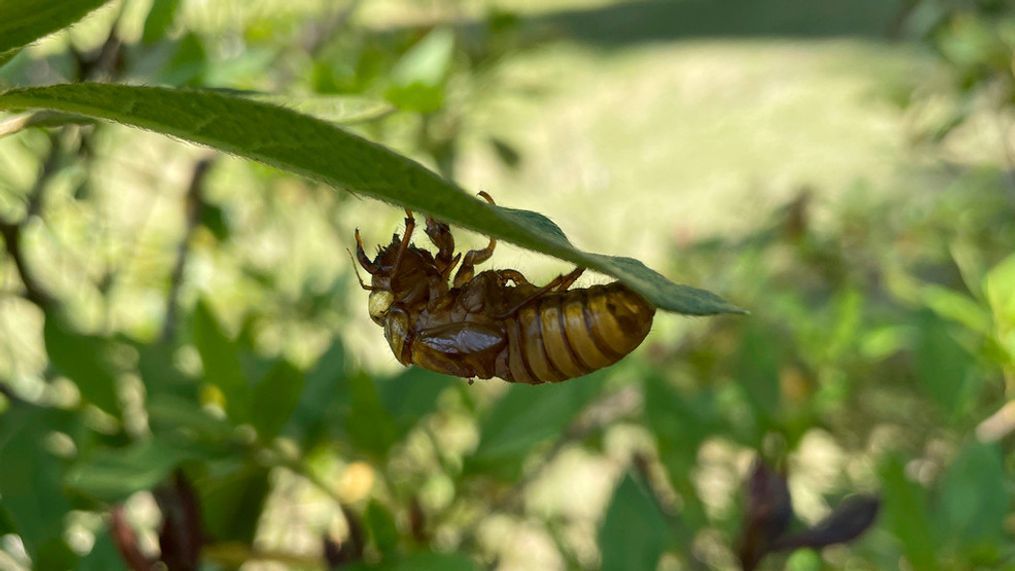Dual cicada broods begin to emerge simultaneously for first time in more than 200 years
SOUTH BEND, Ind. (WSBT) — Cicadas have already started emerging from the ground across the U.S.
A brood is a certain group of cicadas that only emerges during a certain cycle. This year, two different broods are coming out at the same time, and trillions are expected to make an appearance.
The last time this happened was when Thomas Jefferson was president in the 1800s.
But I want to be there just to witness all the cicadas because I think it is going to be one of those deals where they are covering everything the sides of trees, the sides of buildings, the sides of everything and their path," said Rum Village Nature Center Director Garry Harrington.
Brood 13, with a 17-year cycle, is predicted to emerge primarily in Wisconsin, Illinois and Iowa. Brood 19, which has a 13-year cycle, is predicted to emerge in the southeastern U.S. in. states likeTennessee, Mississippi, Alabama, Georgia and the Carolinas.
These are a little different than the annual variety of cicadas.
"The regular, normal cicadas are going to be more green colored ... These guys are a little funkier kind of dark with red eyes and some orange legs and some orange on their wings too so it looks very, very different," said Phil Woolery with Purdue University's Extension's Agriculture and Natural Resources program, senior extension.
While they look intimidating and are loud, they are harmless to humans. The only environmental concern is with young trees.
The one thing to be concerned about if you have newly planted young trees that they could lay eggs and that could be more of a concern so you can get insect netting to cover those smaller trees to protect them from the egg laying there," said Woolery.
There is one major upside to the large quantity.
"They are really actually going to be beneficial to a lot of wildlife because it's going to be a smorgasbord of lots and lots of food for every kind of animals, whether it be reptiles and amphibians, whether it's mammals, especially birds they're going to be gorging themselves on cicadas, I guarantee it. There are people who eat cicadas too," said Harrington.




